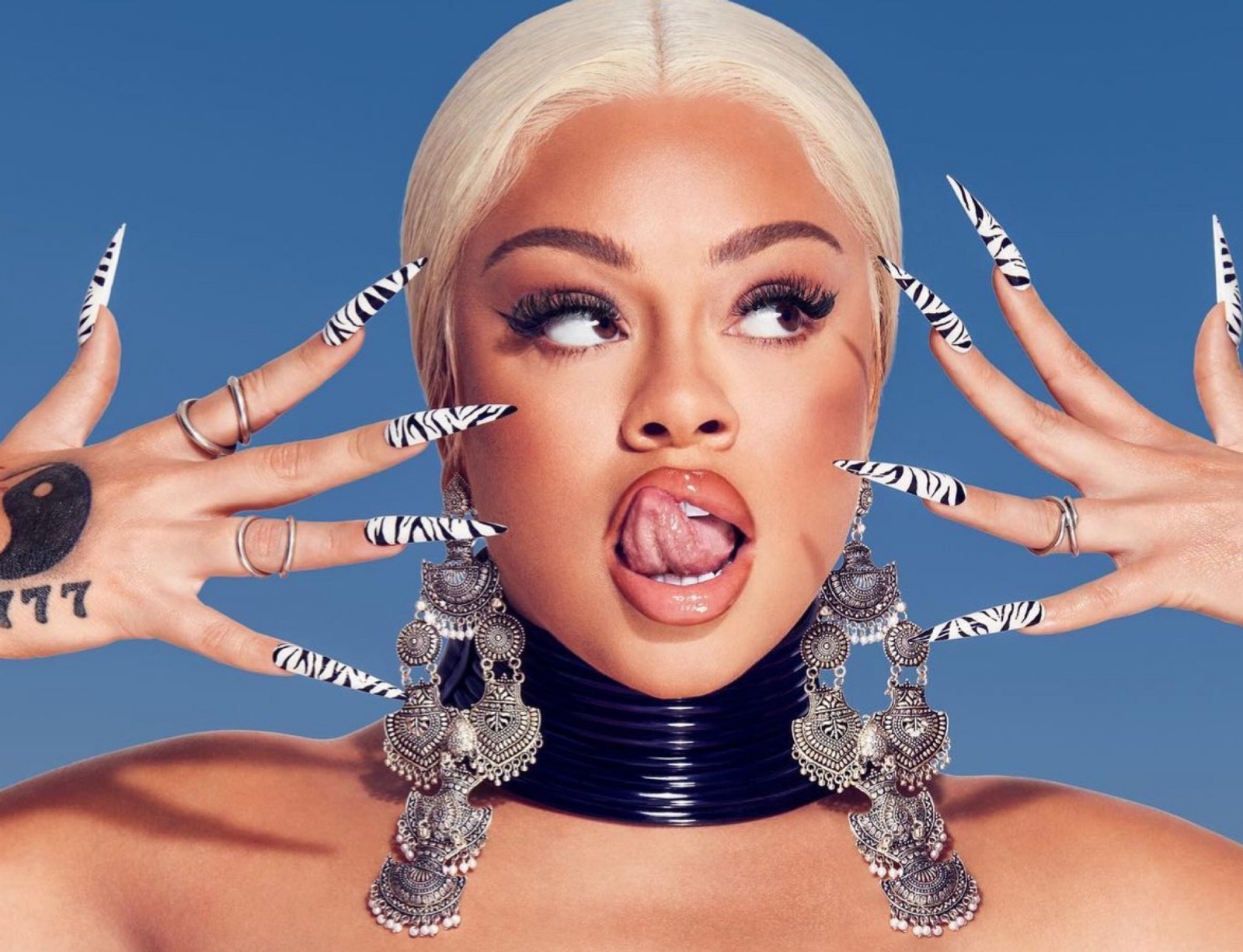LATTO “777” REVIEW

Queen Of The Souf had the air of a formal introduction to one of the new rap’s leading ladies. Latto’s debut album finally lived up to the expectations that accompanied her from fan-favorite mixtapes and YouTube-exclusive freestyles, garnering millions of views after years of slogging.
The music was made with furious bars that underlined the hunger of a young rapper demanding her dues, and it was geared for both festivals and nightclubs. There was little to dispute Latto’s abilities as an MC with co-signs from Gucci Mane and Trina, who both contributed to the project, plus extra lines from 21 Savage, 42 Dugg, and City Girls.

Her first album helped her make the move from unknown to star, but it also unintentionally affected the direction of her second album. The criticism of her initial rap name’s racial insensitivity caused her to quickly establish herself as a fixture on Instagram microblogs, which resulted in a huge makeover that was unexpected of an artist getting ready for their second major-label release. She created the framework for her second album by simply dropping the first two letters of her name.
With 777, Latto starts her most challenging undertaking to yet. At first glance, it seems to be an allusion to winning the lottery, but Latto quickly points out that luck has played a very small part in her success. Latto’s thrilling performances in parts 1 and 2 of the song’s title track get things started, and his technical prowess is on full display. The Clayton Co. rapper Busta Rhymes opens Part 1 with production by Sonny Digital, who uses a suspenseful sample that is slightly evocative of the windy urgency of the “Gimme Some More” opener.
She snaps back at her critics, “Top two, and bitch, I ain’t number two/ Real rap back, and Latto is the proof.” In part two, she repeats this concept in a similar manner but with much larger clapbacks—some more literally than others—and the assurance of an experienced MC. The double-dose start tracks’ ferocious intensity quickly gives way to more effervescent textures. Based on the original preview, “Wheelie” was predicted to be a legitimate TikTok smash, while Latto’s remix of Mariah Carey’s “Fantasy,” “Big Energy,” and “Fantasy” capitalizes on early 2000s nostalgia.
However, Latto’s pop sensibilities shine when they highlight her vocal prowess. She collaborates with Lil Wayne and Childish Gambino on the glitzy and joyful gospel-influenced song “Sunshine,” for instance. The song’s significance resides in Latto’s first instance of vulnerability on the project, despite the fact that Childish Gambino and Lil Wayne both significantly overshadow her with their respective lines. In a relatively wholesome section of the song, Latto’s exquisite vocal rendition reinforces the underlying message of maintaining optimism in the face of difficulty.

The resilient, shittalking bars that propelled Latto to the top are captured in 777, but she also spends a lot of time exploring a softer aspect of her femininity. Latto employs male voices to support her perspective throughout the album, whether it’s on the fast-paced “Stepper” with Nardo Wick or when she’s enjoying the results of her labor with Kodak Black on their upbeat collaboration, “Buss Down.” However, Latto explores her sexual appeal unabashedly on “Like A Thug” ft. Lil Durk.
When women in hip-hop are sexually powerful, they tend to draw the most criticism, which frequently brings forth a raging chauvinism. Latto, though, walks a fine line. In “Like A Thug,” she reveals her sexual dreams and desires without going into great detail, enabling the listener’s imagination to fill in the spaces. Latto continuously reminds a lover that she is unique and should be treated as such by every man who is fortunate enough to be in her presence. Latto’s enthusiasm naturally complements Durk’s type of humorous TMI songwriting, which sets off what might be a more in-depth investigation of Latto’s soulful delivery.
Since Latto’s development has been tracked since she was a teenager, each of her victories is all the more dazzling. Despite having a large following that is rooting for her to succeed, she has regularly found herself defending herself in The Shade Room’s comment area due to emotional reactions to criticism. 777 not only responds to the criticism she has received head-on but also provides one of the most complete analyses of her artistic abilities.
The bars that made her the “Queen Of The Souf” are still heavily influenced by the South. 777, though, emphasizes her capacity to go even further. Her vulnerability now commands attention in a way it hasn’t before, demonstrating the maturity of a young person who has grown up in the spotlight. Latto’s most diversified project to date is built on her sensitivity from the unrelenting public criticism, her tenacity during her ascent, and the hunger of an MC demanding respect.



